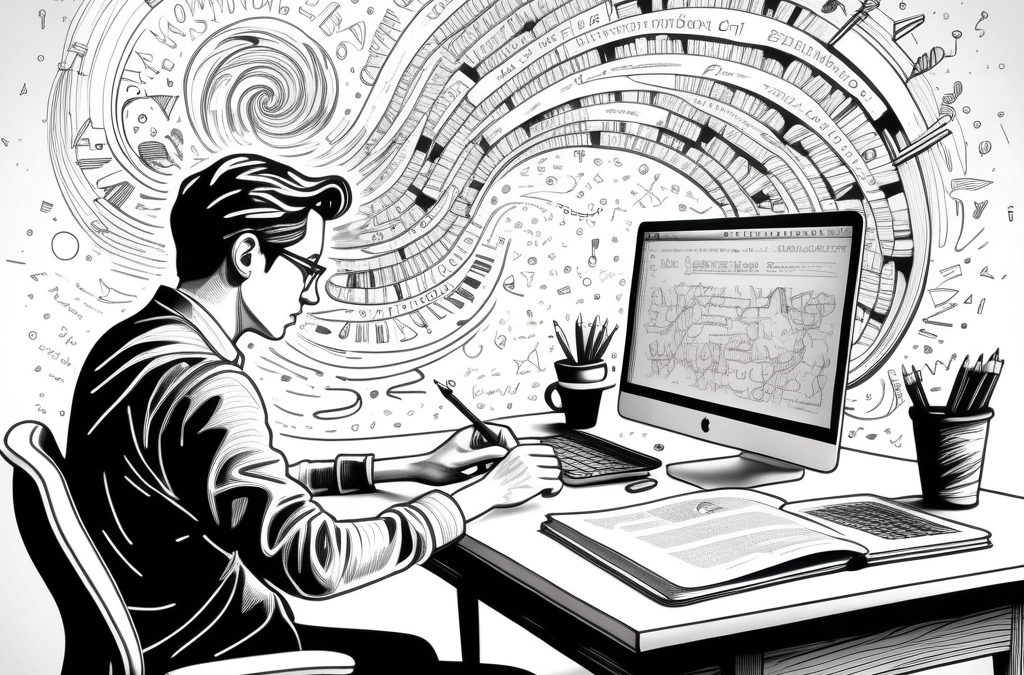The world of content creation is experiencing a seismic shift, with artificial intelligence (AI) generators leading the way. These cutting-edge tools have the ability to produce text at unprecedented speeds, transforming the landscape for writers, marketers, and tech enthusiasts alike. As AI-assisted content creation becomes the norm, understanding the profound impact of these technologies on writing is essential.
AI’s influence on content writing extends beyond tech experts, affecting students, young professionals, and consumers of online media. As AI continues to evolve, its role in writing will expand, presenting both exciting opportunities and pressing challenges:
- Enhanced Creativity: Writers can use AI generators to augment their creativity and streamline workflows, producing high-quality content more efficiently.
- Job Security Concerns: Increasing reliance on AI raises questions about originality and job displacement for human writers.
- Ethics of AI Writing: As content generation becomes automated, ethical considerations regarding ownership and authenticity come to the forefront.
This article explores the transformative effects of AI generators on the writing process, examining the benefits they provide and the implications for students, young professionals, and the future of writing. While AI can achieve remarkable feats, the human touch remains an indispensable element of storytelling. By recognizing AI’s potential and limitations, writers can unlock new creative possibilities and navigate the rapidly evolving content landscape.
The AI-Powered Writing Revolution
AI content generators are revolutionizing the writing process by producing human-like text based on specific prompts. Leveraging advanced algorithms and natural language processing, tools like OpenAI’s ChatGPT and Jasper allow writers to craft everything from in-depth articles to engaging social media posts in seconds. The impact of these tools on the writing process is significant:
- Streamlined Writing: AI handles mundane aspects of writing, allowing authors to focus on high-level creative thinking.
- Collaborative Brainstorming: Writers can use AI as a brainstorming partner that generates outlines and ideas, enabling exploration of new concepts without getting bogged down.
By overcoming writer’s block and supporting creativity, AI transforms how we approach writing. For students and young professionals, these tools turn daunting tasks into engaging experiences, fostering an environment of creativity and efficiency.
The Benefits of AI in Content Creation
The advantages of AI content generators are evident:
- Increased Efficiency: Writers can produce high-quality content significantly faster than traditional methods.
- Enhanced Research Capabilities: AI quickly analyzes vast amounts of data, providing relevant insights that save time and improve content quality.
- Quality Meets Quantity: AI enables writers to meet deadlines without compromising substance, allowing them to refine their unique styles and explore new ideas.
As the digital landscape evolves, the benefits of using AI in content creation will continue to grow, unlocking writers’ full potential to produce engaging and memorable content.
AI Content Generators for Students: A Game Changer in Education
AI content generators are transforming how students approach writing assignments, making education more accessible and enjoyable:
- Overcoming Writer’s Block: AI tools provide prompts and topic suggestions, helping students overcome creative obstacles.
- Streamlined Research: AI enhances the quality of work by quickly identifying relevant facts and sources, teaching students how to gather and evaluate information effectively.
As these tools become more prevalent in education, it’s vital to balance technology with creativity. While AI enhances writing, students must remember that their unique voice is invaluable.
Empowering Young Professionals: AI Tools for Effective Writing
For young professionals, AI-powered writing tools simplify the content creation process:
- Facilitating Collaboration: Many AI tools allow multiple users to work on documents simultaneously, boosting productivity and fostering creativity.
- Staying Competitive: Companies seek writers who can leverage AI to produce engaging content while maintaining a personal voice.
AI can assist with research and organization, but young professionals must balance using these tools while infusing their work with a unique perspective.
The Impact of AI on Creative Writing
Artificial intelligence is reshaping the landscape of creative writing:
- Balancing Emotion and Efficiency: While AI can produce text rapidly, it lacks the emotional depth and nuance that human writers provide. Writers must navigate this balance to ensure their unique voice shines through.
- Sparking Inspiration: AI can generate plot ideas and writing prompts, assisting emerging writers in exploring new styles and themes.
Despite the benefits, reliance on AI raises questions about authenticity and originality. Writers must curate and refine AI-generated content to align with their vision, understanding AI’s strengths and limitations.
Navigating the Challenges: Ethical Considerations in AI Writing
The rise of AI in content writing brings critical ethical considerations:
- Originality vs. Plagiarism: AI-generated content may inadvertently mimic existing works. Writers must check for originality to avoid copyright issues.
- Job Security: While concerns about AI displacing writers exist, it’s important to recognize that AI is designed to augment human capabilities, not replace them.
- Transparency: Writers should disclose their use of AI in content creation to maintain credibility and trust.
Addressing these ethical challenges allows writers to harness AI responsibly, prioritizing originality and transparency.
Conclusion
AI generators are transforming content writing, increasing efficiency while enhancing creativity. However, it is crucial to remember that AI is not a replacement for human writers but a collaborator that enables more imaginative and authentic content. The integration of AI presents challenges, including ethical considerations about originality and job security, which writers must navigate thoughtfully.
As the content writing landscape continues to evolve, understanding how to effectively leverage AI tools will be essential for success. By embracing the synergy between human creativity and AI capabilities, writers can enhance their storytelling and communication skills, ushering in a new era of innovative content creation. The future of content writing is bright, and the journey ahead promises a harmonious coexistence where AI complements our writing endeavors.


